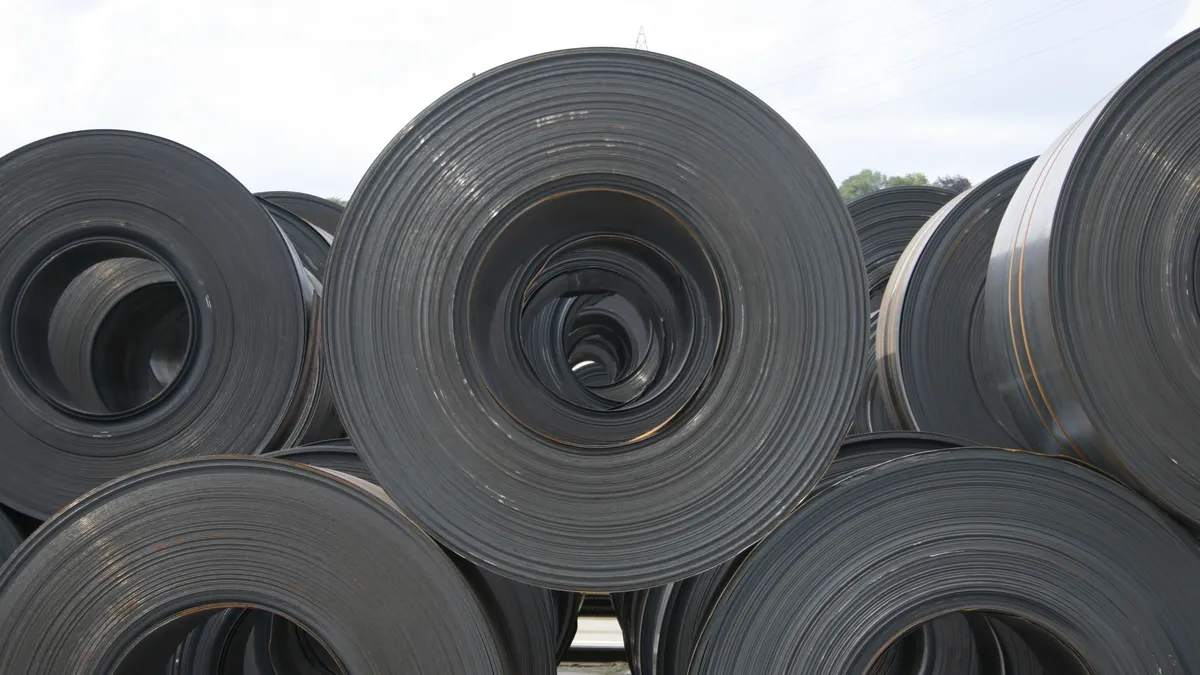Dive Brief:
- The U.S. will reinstate 25% tariffs on imported Brazilian and Argentinian steel, President Donald Trump tweeted Monday morning. The President did not mention the aluminum tariffs enacted at the same time as the global steel tariffs being restored in his tweets. The move was not yet published on the website of the United States Trade Representative as of publication.
- "Brazil and Argentina have been presiding over a massive devaluation of their currencies, which is not good for our farmers," Trump tweeted, citing an unfair trading environment as the rationale for reinstating the tariffs. Trump further called on the U.S. Federal Reserve to "act likewise" by lowering interest rates.
- Brazil and Argentina lobbied for and received exemptions from the 25% tariffs on five classifications of global steel imports as of June 2018. Canada, Mexico and the EU were initially granted reprieves, but the administration reversed those decisions within weeks only to lift the tariffs again in May 2019.
.....Reserve should likewise act so that countries, of which there are many, no longer take advantage of our strong dollar by further devaluing their currencies. This makes it very hard for our manufactures & farmers to fairly export their goods. Lower Rates & Loosen - Fed!
— Donald J. Trump (@realDonaldTrump ) December 2, 2019
Dive Insight:
Brazil is a major source of steel imports for the U.S. — second only to Canada in export volume with 403,599 metric tons imported in October. Argentina is a considerably less significant steel trading partner at 11,046 metric tons in October according to the Census Bureau.
Though Trump's main reasoning for this global tariff war — which now encompasses China, Canada, the European Union, Japan and Mexico — has been trade imbalances between the U.S. and its trading partners, the President has focused on currency manipulation in recent months as a secondary justification.
In August, the Trump administration officially labeled China a "currency manipulator," accusing the Chinese government of combating tariffs by keeping its currency low in value in an effort to nullify the duty charged to U.S. importers of Chinese goods.
Whether intentional or not, a country with a weakening currency may be a more attractive trading partner for U.S. customers since similar goods could be available for a cheaper value without lowering the sticker price. The U.S. dollar is currently strong, advantaging American importers but possibly disadvantaging U.S. exporting businesses with international competition.
In the case of Brazil and Argentina, the President fell short of overtly declaring intentional currency manipulation.
Political unrest in Brazil and questionable monetary policy in Argentina, along with an increasingly tepid global economy, are likely to blame for the currency devaluations. However Brazil and Argentina have also benefited from the U.S.-China trade war as China's voracious appetite for soy has transferred from the U.S. to other sellers.














